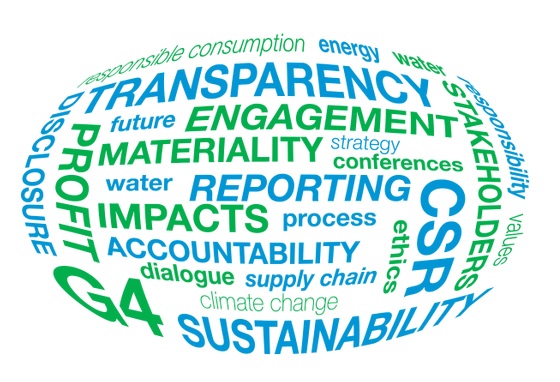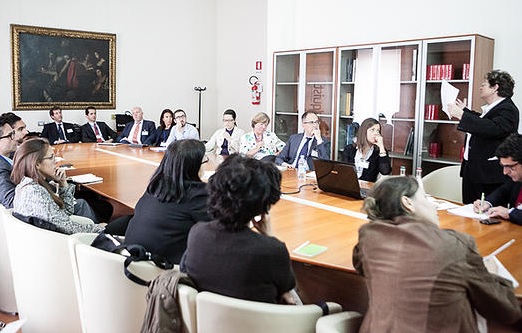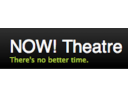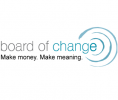News: Interview with Elaine Cohen – sustainability strategy and reporting expert

Interview with Elaine Cohen – sustainability strategy and reporting expert, founder and CEO of Beyond Business
By Dana Fatol
August 16, 2015
Thank you so much Elaine for giving me the opportunity to interview you for Sustainability Television. I am such a fan of your book ‘CSR for HR’ and a frequent reader of your blog CSR Reporting. I love your view on CSR reporting and the important role it can play in many facets of an organization.
At Sustainability TV we focus our attention almost solely on positive, solution oriented, result-based activities that are improving our communities, and corporate bottom lines in the process.
In our interview today I would like to gather some real world examples and CSR best practices that our readers can put into practice in their own lives.
Dana Fatol: Let’s start by giving to our readers a clear overview of the function and importance of CSR reporting. What are the most important things one should know, that can bring is definition to life?
Elaine Cohen: The purpose of reporting is to enhance the level of trust in your organization. Transparency is the currency of trust. Not just any transparency – relevant transparency – that is, information about the most important impacts of your organization that addresses the expectations and concerns of stakeholders.
As you become expert in delivering the information that your stakeholders want and need in order to define their relationship with you as a company, you find that the level of stakeholder trust in your organization increases. Employees, customers, consumers, investors, business partners, regulators – all these stakeholders influence the success of your organization. When you have their trust, the outcome is better business.

Dana Fatol: What are the main points that an “employee” should know when looking at the CSR report of their organization? How can they better understand what the metrics are telling them?
Elaine Cohen: Employees are the stakeholders that are closest to the organization and know it best. An employee should recognize the organization it works for in the report. If it sounds like another company, if it looks and feels like a workplace you don't relate to, that's the first sign that there is something inherently misleading in the report.
Beyond that, employees should find CSR reports to be a source of validation and inspiration on three levels:
· First, the approaches and values expressed in the report should underpin the employee's own approach in the workplace. Often, the CEO statement is a valuable reference point for what your organization is publicly declaring in terms of commitment to sustainability. This is an anchor for employee behavior.
· Second, the performance data in the report demonstrates that there is (or isn't) integrity in the organization. If the declaration is about gender balance, and the data shows that no women are on the executive team, then an employee can immediately identify a certain dissonance between the talk and the walk.
· Third, case studies and examples of practice show the employee what can be done and can provide inspiration for considering similar opportunities for sustainable initiatives in the employee's own sphere of influence.
Dana Fatol: In one or your previous blog posts you mentioned the phrase; “If you don’t trust it all, you don’t trust it.” (additional reference: Do you trust Sustainability reports?)
What makes a CSR report consistent and gains the trust of the people reading it?
Elaine Cohen: Trusting the report is about focus, clarity, balance, integrity and recurrence. Companies should report information clearly, with no clutter and irrelevant verbiage, including performance against stated targets, and balance the report with relevant context and references to challenges where performance was not delivered as targeted. Integrity means achieving alignment between intention and practice. As mentioned above, dissonance between what the organization says is important and what the organization actually does is a big trust-breaker.
Finally, regular good quality reporting builds trust. No single report is evidence of consistent, embedded practice. I almost never read one report without looking at prior reports. I look to see if what the organization is saying today comes from a foundation of what it's been saying in the past and how it has presented information over time.
Dana Fatol: I understand that you work with companies across a number of regions, and I’m interested in hearing your thoughts on equal opportunities for women in organizations that are operating in multiple jurisdictions?
Perhaps you could also touch on the qualitative side of CSR analysis?
In your opinion, can the existence of a Women’s Network within an organization positively influence equal opportunities for women within that organization?
Elaine Cohen: Equal opportunity for women is not about where the company operates, local or internationally. It's about how the company leadership views the imperative of a gender balanced organization as critical to its success.
Typically, companies that are advanced on their CSR journey are also the ones who have understood that restricting half the world's population from access to opportunities in their workforce is a business own-goal. Most of the clients that I work with around the globe have already realized the value of advancing women and are making headway. But it's not just about numbers of women in the workforce, or even women in management. It's about a culture that both enables and encourages women to advance.
You can't do this without men. Currently it still tends to be men who drive the culture in organizations. Changing the way men think about women as directors, executives and managers is the critical enabler for women's advancement. Sorry, but that's the way it is. Without broad-scale attitude change within male-dominated organizational hierarchies, no amount of Women's Networks or Women's Resource Groups or other such initiatives will create opportunities for women.
Having said that, such initiatives are important as support groups and networks that can help women build skills and counsel each other in addressing common issues that women face in the workplace so that when the floodgates of opportunity finally open, women will be even better equipped to advance.
Dana Fatol: In your latest blog post Will GRI’s new strategy work? you are talking about innovation and collaboration being one of the four pillars of the new strategy. Is innovation the DNA of the GRI? How so?
Elaine Cohen:: I don't believe that organizations have DNA. Only people have DNA. People lead organizations. When the people leading organizations change, the DNA changes. GRI has had leadership changes over the past couple of years, and the DNA of the new leaders places more emphasis on innovation. Innovation is a relative term. You could argue that the introduction of G4 is the most innovative initiative in sustainability reporting that GRI ever undertook. G4 has transformed the landscape of reporting, even though to some it feels like just another reporting framework. Did it go far enough to be considered truly innovative? That's a matter of debate.
But G4 did break the paradigm of transparency, meaning everything an organization does, in favor of relative transparency, meaning the most important material impacts of an organization. Did the GRI go far enough in driving innovative approaches to reporting, such as sector-based reporting? Absolutely not. Global versus local reporting? Absolutely not. Leveraging the value of assurance? Absolutely not. Addressing the inconsistencies in the quality of reporting? Absolutely not. Embracing digital communication formats? Absolutely not.
Now, innovation is referenced in terms of the value to be gained from reporting, rather than the report publication itself. Time will tell whether the current GRI leadership has the ability to help companies drive innovative ways to leverage the benefits of reporting to drive sustainable change. Ask me in another two years.

Dana Fatol: If there is no existing CSR department within an organization, and CSR reporting has not been something that an organization has done in the past, how would a company start a CSR program?
What would you recommend are the first steps to implementing a robust and forward thinking CSR plan?
Elaine Cohen: The first step in any CSR journey should be a materiality map. This is a detailed analysis of who the organization's stakeholders are and what is important to them. Ideally this should involve some form of dialog with primary stakeholders. Using the output of this process for a high-level discussion in the organization about what's most important for the business and for stakeholders should help identify areas of focus for a strategic sustainability approach.
I often talk about a company's social mission. Before developing a CSR strategy, a company should be clear about how its business contributes to society beyond the economic contribution of generating revenues, profits, paying taxes and employing people. Every company does these things or they are not a company. So the differentiator is about the unique contribution of each company to improve the quality of life for stakeholders. A drug company is not about selling drugs, it's about making people healthier. A cable company is not about providing cable services, it's about "promoting a digital society". This last example is from Liberty Global, the largest international cable company that I have worked with for some years. The CSR approach is rooted in the social mission, a clear differentiator, and each year, Liberty Global delivers more under this umbrella.
Dana Fatol: Thank you for taking the time to connect today, Do you have any specific thoughts for the Sustainability Television members & followers worldwide, regarding the future of Corporate Social Responsibility?
Elaine Cohen: CSR is maturing from a project that is distinct from the business to a core approach that is part of business. The greater the alignment between CSR-driven practices and business focus, the better value companies will derive from a CSR-driven focus. Companies are also realizing that CSR can no longer be totally introspective. It's not only about what a company does, it's about the difference a company makes through what it does. In addressing this, companies realize that making a difference often requires collaborative efforts beyond the capabilities of a single company alone.
So, for sustainability to have real value, companies must be more engaged beyond their own factory gates or office doors. Reporting then becomes a catalyst for action. It's a platform for a public declaration of intentions and helps drive performance improvement. It's never too early to start reporting. But, as a reporting consultant and writer, you might have expected me to say that!
Finally, CSR and sustainability is fun. It's optimistic, it's empowering, it's motivating. Far too many companies have an overly serious, boring, headache-based approach to sustainability: if it gives us a headache, we need to deal with it. The problem with this is that it's hard to be optimistic when you have a headache. It's hard to enjoy the process. By treating sustainability as something fun, as a party, you can derive best value. Engaging and empowering employees through sustainability by making it party-time turns sustainability into an opportunity to do good business, improve society and have fun in the process.
Elaine Cohen is the founder and CEO of Beyond Business. She is an expert voice in the field of sustainability strategy and sustainability reporting and the CSR interface with Human Resources Management. She is the author of three books on sustainable practice and reporting. Elaine writes regularly for her CSR Reporting blog and other publications, and is a frequent chair and speaker at sustainability conferences, including the annual Smarter Sustainability Reporting Conference every February in London. Elaine gained over 20 years of business experience in executive positions with Procter & Gamble and Unilever prior to founding Beyond Business Ltd in 2005. Elaine was selected as one of the 100 Top Thought Leaders in Trustworthy Business Behavior in 2014 and tweets as @elainecohen.
Category:

































